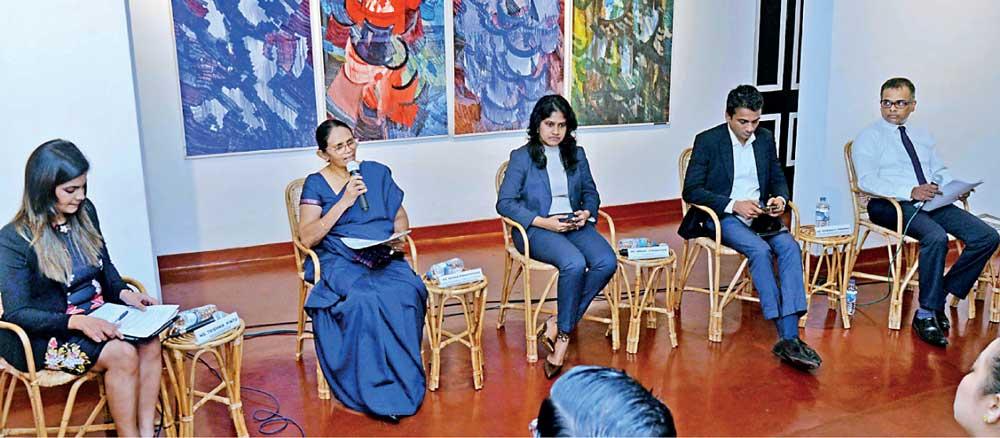17 Jul 2024 - {{hitsCtrl.values.hits}}

From left: Moderator Trishma Pinto, Export Development Board Acting Additional Secretary Anoma Premathilake, Economist Imesha Jayathilake, Advocata CEO Dhananath Fernando and Institute of Policy Studies Research Fellow Dr. Asanka Wijesinghe during the panel discussion
By Nuzla Rizkiya
As Sri Lanka advances its trade liberalisation efforts through new preferential agreements, experts are urging the government to learn from the strategic approaches of other nations.
With the recent conclusion of the free trade agreement (FTA) negotiations with Thailand, Sri Lanka has a valuable opportunity to leverage Thailand’s strategies to optimise its own FTA implementations and ensure strong benefits.
“We should actually look at the strategies Thailand and Vietnam have utilised over the past two years. A main reason for their boosts in exports is the multiple but very comprehensive trade agreements they have signed,” said Advocata Institute Chief Executive Officer Dhananath Fernando.
Addressing a panel discussion hosted by the Royal Thai Embassy, he pointed out that one critical aspect of Thailand’s strategy was its focus on specific sectors that offered the highest potential for growth and export diversification. By prioritising sectors such as agriculture, electronics and automotive manufacturing, Thailand ensured that its FTAs would have a significant impact on its economy.
“It should be the same here in Sri Lanka. We need to produce high-quality products and remain competitive in the global market. Trade is the only way out for us. Only through severe competition can we actually make it,” Fernando emphasised.
Reflecting similar sentiments, a research fellow at the Institute of Policy Studies Dr. Asanka Wijesinghe noted that the trade agreement between Thailand and Sri Lanka would bring both challenges and opportunities for both the countries.
While the FTA with Thailand is comprehensive enough, one significant downside risk especially for Sri Lanka is the potential widening of the bilateral trade deficit, given the recent economic conditions and Sri Lanka’s persistent balance of payments hardships.
“We need to understand that Thailand is a very competitive economy. It has a comparative advantage in 1,127 products and a more complex production structure than Sri Lanka. Rubber, electric equipment, vehicles and their parts are some top products listed on their offensive list,” Wijesinghe explained.
Therefore, in order to reap the full benefits, he recommended Sri Lanka to start to export new product lines by bargaining for concessions for products in the offensive list, including electronics, electric components, wearing apparel and rubber.
“I think both of our countries should take this agreement beyond the tariffs. We should focus more on products and encourage bilateral production with regard to global value chains,” he said.
26 Nov 2024 3 hours ago
26 Nov 2024 4 hours ago
26 Nov 2024 5 hours ago
26 Nov 2024 6 hours ago
26 Nov 2024 7 hours ago